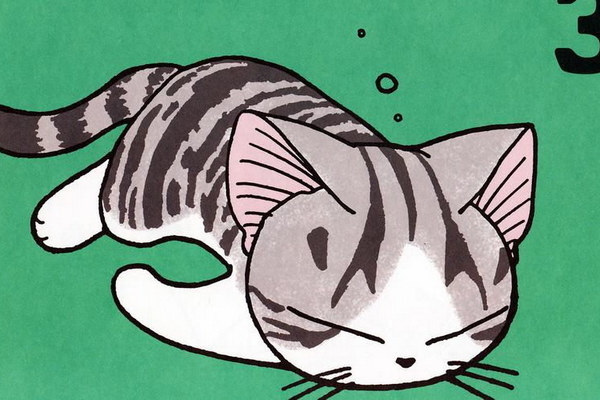Сара Тисдейл. Изваяние монахини
ИЗВАЯНИЕ МОНАХИНИ
(шестнадцатый век)
Сколько душевности, сколько иронии
Скрыто под веками этих очей,
В келье познавших: не может премудростью
Дух свой возвысить мудрец-книгочей.
Складки одежды с любовью вытёсывал
Тот, кто суть женщин-монахинь постиг:
Ныне как встарь ледяное спокойствие
Гордо хранит женский лик.
Бледные губы улыбка чуть тронула:
Мир ею взвешен был, воля тверда;
Пальцы изящные сжали распятие
И не жалели о том никогда.
Мысли таила в себе она бережно,
Тех разделяя вседневный настрой,
Кто наблюдает за жизнью, как публика
Из темноты за актёрской игрой.
Если была любопытною, страстною,
То, вероятно, сказала себе,
Что без любви станет жить она праведней,
Бросив тем самым свой вызов судьбе.
Ей, так любившей своё одиночество,
Слёзы, и смех позабывшей мирской,
В ризе монашеской спящей да спящей –
Яркие ль сны дарит вечный покой?
Сколько участия, сколько иронии
Спрятали веки закрытых очей,
Твёрдо поняв: не возвысит премудростью
Дух даже истый мудрец-книгочей.
Effigy of a Nun
(Sixteenth Century)
Infinite gentleness, infinite irony
Are in this face with fast-sealed eyes,
And round this mouth that learned in loneliness
How useless their wisdom is to the wise.
In her nun's habit carved, carefully, lovingly,
By one who knew the ways of womenkind,
This woman's face still keeps its cold wistful calm,
All the subtle pride of her mind.
These pale curved lips of hers holding their hidden smile,
Show she had weighed the world; her will was set;
These long patrician hands clasping he crucifix
Once having made their choice, had no regret.
She was one of those who hoard their own thoughts lovingly,
Feeling them far too dear to give away,
Content to look at life with the high insolent
Air of an audience watching a play.
If she was curious, if she was passionate,
She must have told herself that love was great,
But that the lacking it might be as great a thing
If she held fast to it, challenging fate.
She who so loved herself and her own warring thoughts,
Watching their humorous, tragic rebound,
In her thick habit's fold, sleeping, sleeping,
Is she amused at dreams she has found?
Infinite tenderness, infinite irony,
Hidden forever in her closed eyes,
That must have learned too well in their long loneliness
How empty their wisdom is even to the wise.
(шестнадцатый век)
Сколько душевности, сколько иронии
Скрыто под веками этих очей,
В келье познавших: не может премудростью
Дух свой возвысить мудрец-книгочей.
Складки одежды с любовью вытёсывал
Тот, кто суть женщин-монахинь постиг:
Ныне как встарь ледяное спокойствие
Гордо хранит женский лик.
Бледные губы улыбка чуть тронула:
Мир ею взвешен был, воля тверда;
Пальцы изящные сжали распятие
И не жалели о том никогда.
Мысли таила в себе она бережно,
Тех разделяя вседневный настрой,
Кто наблюдает за жизнью, как публика
Из темноты за актёрской игрой.
Если была любопытною, страстною,
То, вероятно, сказала себе,
Что без любви станет жить она праведней,
Бросив тем самым свой вызов судьбе.
Ей, так любившей своё одиночество,
Слёзы, и смех позабывшей мирской,
В ризе монашеской спящей да спящей –
Яркие ль сны дарит вечный покой?
Сколько участия, сколько иронии
Спрятали веки закрытых очей,
Твёрдо поняв: не возвысит премудростью
Дух даже истый мудрец-книгочей.
Effigy of a Nun
(Sixteenth Century)
Infinite gentleness, infinite irony
Are in this face with fast-sealed eyes,
And round this mouth that learned in loneliness
How useless their wisdom is to the wise.
In her nun's habit carved, carefully, lovingly,
By one who knew the ways of womenkind,
This woman's face still keeps its cold wistful calm,
All the subtle pride of her mind.
These pale curved lips of hers holding their hidden smile,
Show she had weighed the world; her will was set;
These long patrician hands clasping he crucifix
Once having made their choice, had no regret.
She was one of those who hoard their own thoughts lovingly,
Feeling them far too dear to give away,
Content to look at life with the high insolent
Air of an audience watching a play.
If she was curious, if she was passionate,
She must have told herself that love was great,
But that the lacking it might be as great a thing
If she held fast to it, challenging fate.
She who so loved herself and her own warring thoughts,
Watching their humorous, tragic rebound,
In her thick habit's fold, sleeping, sleeping,
Is she amused at dreams she has found?
Infinite tenderness, infinite irony,
Hidden forever in her closed eyes,
That must have learned too well in their long loneliness
How empty their wisdom is even to the wise.
Метки:








